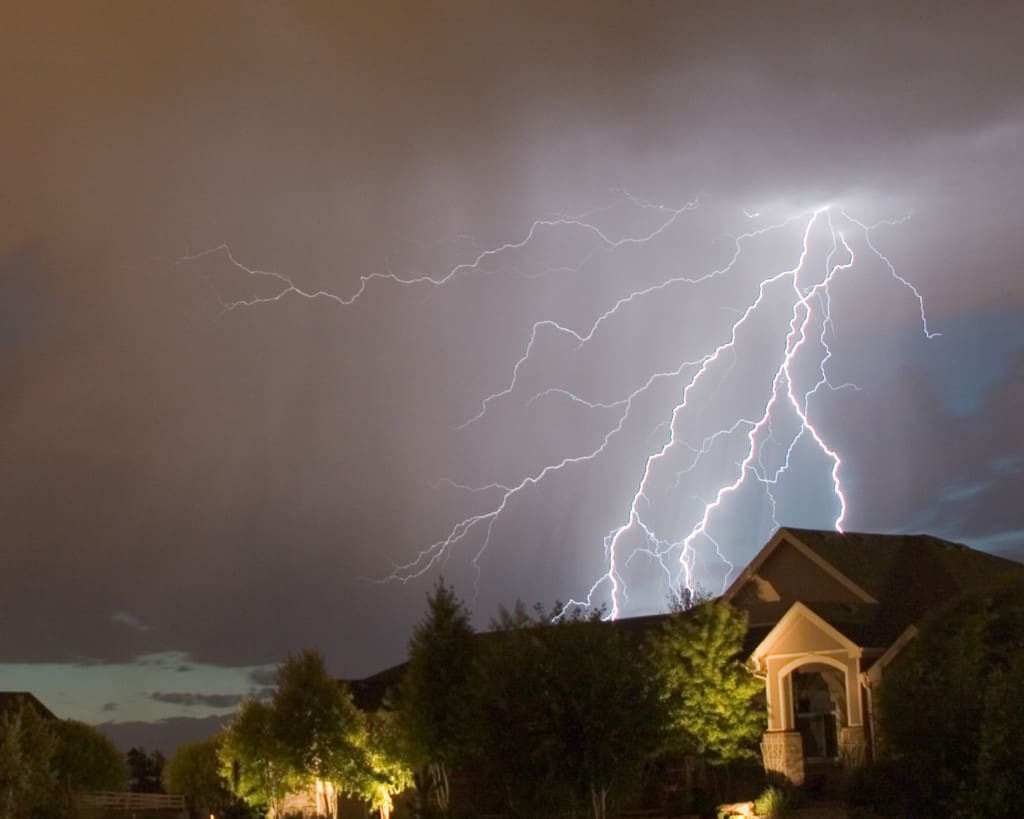The majority of the U.S. is at risk for severe weather, which can cause dangerous and sometimes life-threatening conditions. Snowstorms, extreme cold, hurricane force winds, torrential rains and flooding, and lightning can all wreak havoc on our daily schedules. Preparing before a disaster strikes and knowing what to do during and after a storm will help ensure you and your family greatly reduce your risk for injury and damage to your home.
Severe Weather Fire Safety Helpful Hints
- Develop and practice an evacuation plan ahead of a severe weather event. Include a plan for pets and add any transportation routes and destinations in the plan.
- Prepare an emergency supplies kit for both family members and pets ahead of time to take with you. Be prepared to evacuate when authorities tell you to do so.
- Stay out of flood waters, if possible, and do not drive into flooded areas. Even water only several inches deep can be dangerous.
- Always assume fallen power lines are energized. Stay away from the area and report any downed lines to authorities immediately.
- Unplug appliances and other electrical items, such as computers and televisions, to prevent damage from surges caused by lightning strikes.
- If you evacuated, do not return to your home until local authorities say it is safe.
- Plan two ways out of the home in case of an emergency. Clear driveway and front walk of ice and snow. This will provide easy access to your home.
- Make sure your house number can be seen from the street. If you need help, firefighters will be able to find you.
Source for Content: National Fire Protection Association and U.S. Fire Administration


